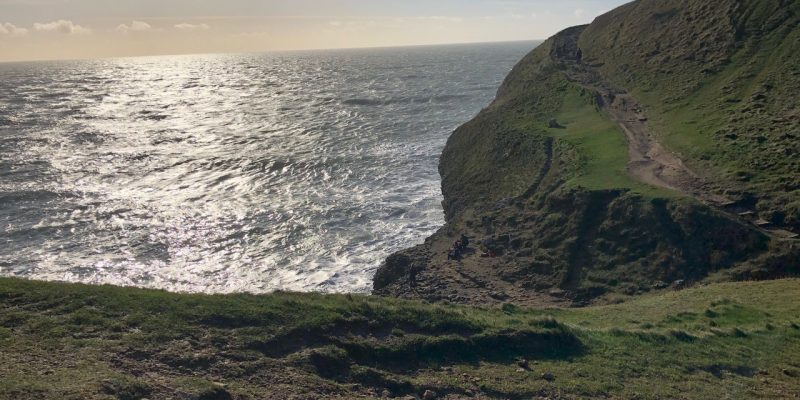The number of dolphin carcasses being found on shorelines this winter is “not unusual” according to Dorset Wildlife Trust.
Ten deceased dolphins have been recorded in Dorset since Early November, on coastlines including Portland, Lulworth and Boscombe.
No trend in the cause of death for these animals has been confirmed, however it is believed that recent strong winds and turbulent weather is responsible.
Emma Rance, marine conservationist officer at Dorset Wildlife Trust, said: “This time of year I wouldn’t say it’s common but it’s typical.
“We’ve got very rough weather and prevailing south-westerly winds and that tends to deposit a lot of debris including carcasses on the shores.”
Despite this, those who come across a beached dolphin have been urged to report to the relevant services as soon as possible, to record the carcass and determine a cause of death through post-mortem.
Emma said: “Dolphins can die of old age, could be disease, could be human interaction say pollution. It could be fishing nets, offshore trawlers – that kind of thing.
“It’s really difficult to say, so time is of the essence. If we are to find a dolphin carcass washed up we need to get an autopsy performed to really determine the cause of death.”
Dorset coastlines are home to a number of species, most notably the bottlenose dolphin and harbour porpoise. However, other less native creatures have been washed ashore after being carried by the gulf stream – more recently the Portuguese Man-o-War jellyfish.
Those who come into contact with a deceased sea mammal are advised to keep their distance to avoid potential harm and to contact Dorset Wildlife Trust on 01305 264620.
Live animals should be reported to British Divers Marine Life Rescue via 01825 765546.


 What’s on in Bournemouth, Poole and Christchurch this weekend
What’s on in Bournemouth, Poole and Christchurch this weekend